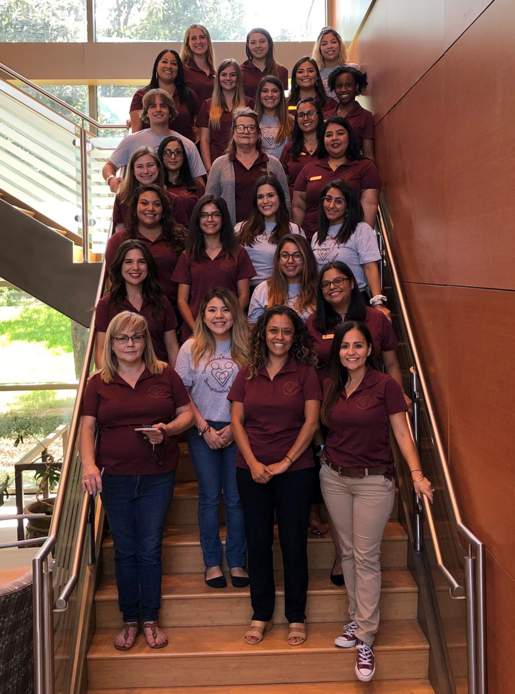Health and Human Services grants expand 'Strengthening Families' mission in Central Texas
Jayme Blaschke | November 5, 2020

Texas State University has received two grants from the United States Department of Health and Human Services totaling approximately $5.8 million in support of the Strengthening Relationships/Strengthening Families (SR/SF) program.
SR/SF is a relationship education program for pregnant and parenting adolescents across Central Texas. The two new grants will fund SR/SF through 2025, said Norma Perez-Brena, assistant professor in the School of Family and Consumer Sciences and program administrator. The Department of Health and Human Services has provided funding for SR/SF since 2005.
"This year we received $4.5 million from the Office of Family Assistance to continue the work we've been doing, and an additional $1.2 million from the Administration on Children, Youth and Families to expand the program," Perez-Brena said. "We will be adding sub-components that have to do with the reduction of sexual risk behavior, including sexual coercion, talking about boundaries, and so on, within the context of romantic relationships.

"In the past, we've served up to eight schools in the Central Texas area," she said. "Now we're going to be serving up to 12 schools and will probably be expanding our reach—looking a little bit southward toward San Antonio and looking east toward some of our emerging communities that are growing as the Central Texas area grows."
Texas ranks 4th in the nation in adolescent pregnancy rates, and 1 in 6 adolescent pregnancies are repeat pregnancies. Adolescent parents, particularly low-income and historically minoritized populations, face stigma, an increase in responsibilities, and a need to engage in systems that are not fully aligned with their new role as students and parents. These experiences place adolescent parents at an increased risk for adverse health and socioeconomic consequences which can include greater health risks, poorer psychological functioning, decreased rates of school completion, higher levels of relationship instability, reduced paternal involvement, and an increased risk of unemployment.
SR/SF facilitators conduct sessions from evidence-based curricula during the school day on topics such as healthy and unhealthy relationships, communication skills, conflict resolution strategies, negotiating childrearing strategies, and managing and sharing parenting duties. The program is delivered with the help of university students from Texas State and surrounding universities to adolescents enrolled in high schools located in Central Texas over the course of the school year. Up to 12 internships will be available to university students every semester. The data shows the effectiveness of the SR/SF approach. A recent systematic evaluation of the program has shown that student who participate in SR/SF report less coparenting conflict, and more healthy relationship attitudes after completing the program.
For information about SR/SF, contact Perez-Brena at (512) 245-2414 or Norma.Perez-Brena@txstate.edu.
Share this article
For more information, contact University Communications:Jayme Blaschke, 512-245-2555 Sandy Pantlik, 512-245-2922 |